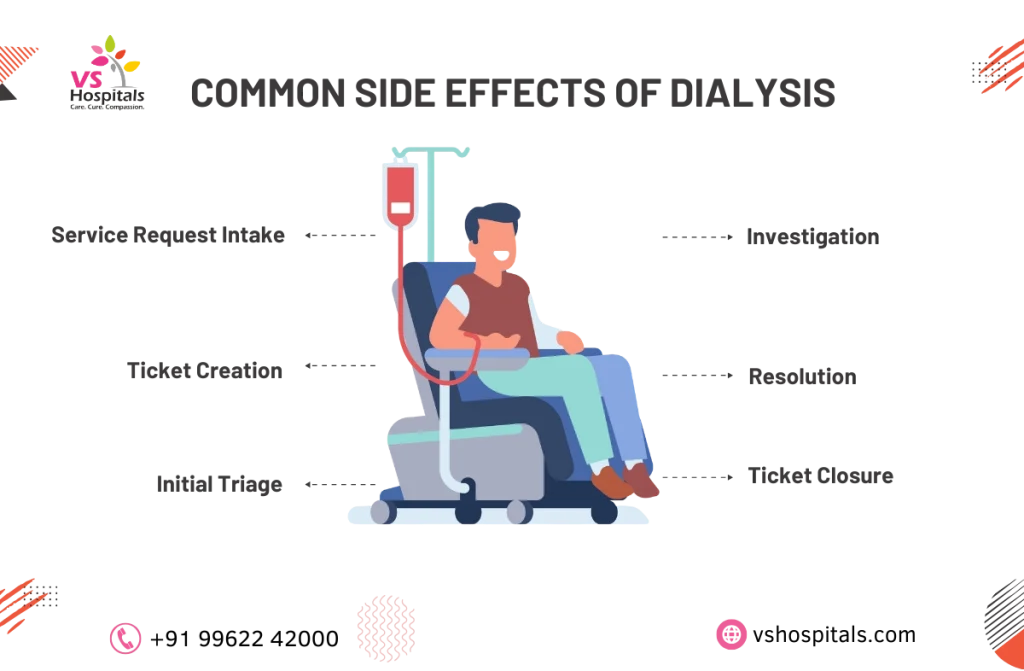Dialysis in Chennai is a vital treatment for individuals whose kidneys are not functioning properly. It is a life-saving procedure that helps filter waste and excess fluid from the blood when the kidneys can no longer do so on their own. For those needing dialysis in Chennai, there are many treatment options available. Understanding the dialysis treatment cost in Chennai and the types of dialysis can help patients and their families make informed decisions about their care.

What is Dialysis?
Dialysis in Chennai is a medical treatment designed to replicate the function of the kidneys. The kidneys play an essential role in filtering waste, toxins, and excess fluid from the body. When the kidneys fail, dialysis becomes necessary to perform these vital tasks. It involves two types of treatments: hemodialysis and peritoneal dialysis. Dialysis helps patients manage the symptoms of kidney failure and maintain a better quality of life.
Who Needs Dialysis?
Dialysis in Chennai is typically required for people with end-stage kidney disease or those with severely impaired kidney function. Patients may need dialysis treatment if their kidneys are functioning at less than 15% of their normal capacity. Common conditions that may lead to kidney failure and the need for dialysis include diabetes, high blood pressure, or chronic kidney disease.
Procedure
Dialysis treatment in Chennai involves a series of steps to clean the blood of waste and excess fluids. The two main types of dialysis are:
- Hemodialysis: Blood is filtered outside the body through a dialysis machine.
- Peritoneal Dialysis: Blood is cleaned inside the body using the lining of the abdomen.
Both treatments require regular sessions, typically two to three times a week, depending on the patient’s condition.
Types of Dialysis and Explanation
Dialysis in Chennai comes in two main types, each with distinct procedures:
- Hemodialysis: This involves the use of a machine that filters the blood through an artificial kidney (dialyzer).
- Peritoneal Dialysis: This type uses the lining of the patient’s abdomen to filter waste and fluid, with a catheter inserted for fluid exchange.
Each type has its advantages, and the choice depends on the patient’s condition and preference.
Risks
Although dialysis in Chennai is life-saving, it carries some risks:
- Infection: Risk of infection at the dialysis site.
- Low Blood Pressure: Common in hemodialysis patients.
- Muscle Cramps: May occur during treatment.
- Blood Clots: Clots may form in the access point or dialysis machine.
It’s important for patients to work closely with healthcare providers to manage these risks.
Benefits
Dialysis in Chennai provides essential benefits for kidney patients:
- Waste Removal: Filters harmful toxins from the blood.
- Fluid Balance: Removes excess fluids that the kidneys can’t filter.
- Improved Health: Helps patients feel better and live longer by maintaining kidney function.
Regular dialysis treatment is crucial for patients with kidney failure to stay alive and improve their overall well-being.
Recovery
Recovery after dialysis treatment in Chennai depends on individual health and the type of dialysis:
- Hemodialysis: Patients may feel tired after the procedure but can generally return to normal activities.
- Peritoneal Dialysis: Requires more daily care but offers flexibility in daily life.
Patients must follow doctors’ recommendations to ensure effective recovery and manage potential complications.
Conclusion
Dialysis in Chennai offers life-saving support for patients with kidney failure. While dialysis treatment cost in Chennai can vary depending on the facility and type of treatment, it is an essential service for kidney patients. With the right care, treatment, and lifestyle changes, patients can manage their condition and improve their quality of life.
Read also Hemodialysis Treatment
